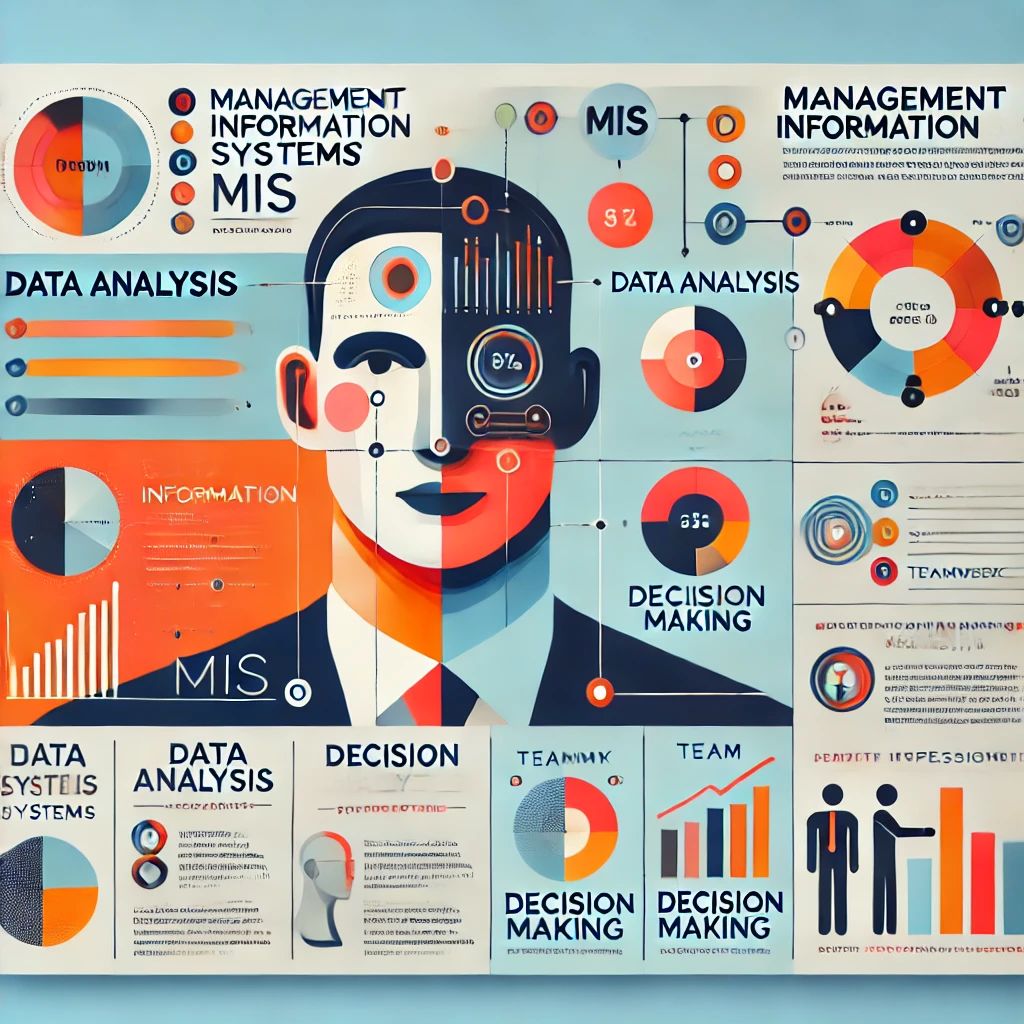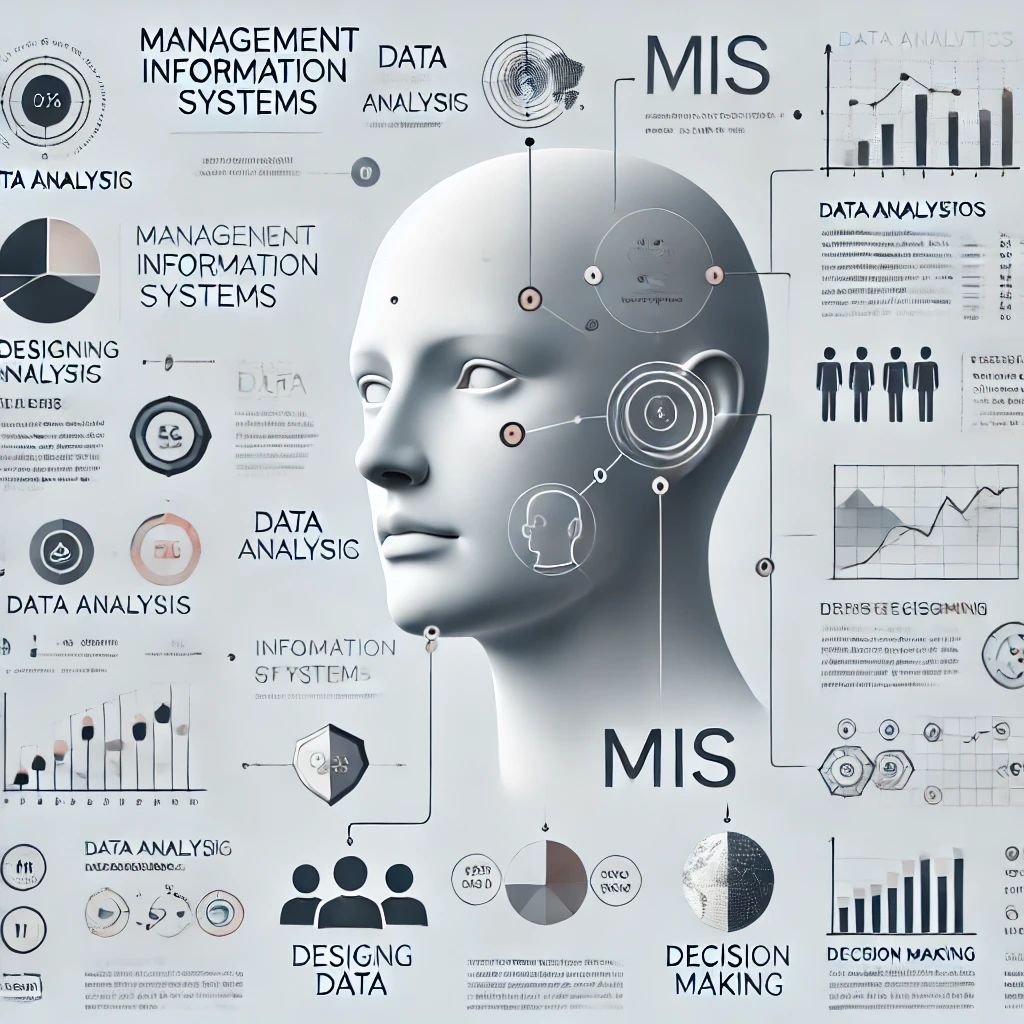
Management Information Systems (MIS): Driving Innovation and Strategic Growth in India
In an era defined by digital transformation, Management Information Systems (MIS) have emerged as indispensable tools for businesses aiming to enhance their decision-making capabilities and operational efficiencies. In India, where industries are witnessing rapid growth and diversification, MIS is no longer a luxury but a necessity. Beyond traditional data handling, MIS is now about innovation, strategic alignment, and value creation in real-world scenarios.
In 2024, Management Information Systems (MIS) became a cornerstone for India's digital transformation. Industries across sectors witnessed remarkable improvements in decision-making, operational efficiency, and innovation through advanced MIS adoption. The integration of technologies such as AI, cloud computing, and IoT empowered businesses to achieve real-time insights, sustainability goals, and competitive advantage in the global market.
Evolving Role of MIS in India
MIS in India has moved beyond its conventional role of data aggregation and reporting. Today, it is an enabler of innovation and strategic planning, empowering organizations to:
1. Foster Agility:
2. Drive Innovation:
3. Ensure Sustainability:
Industry-Specific Applications of MIS
1. Education Sector
• Transformation: Educational institutions are using MIS for personalized learning pathways and administrative efficiency.
• Real-World Example: Universities in India leverage MIS to track student performance, automate admissions, and manage resources like classrooms and libraries.
• Future Potential: Integration with AI to predict student success and recommend tailored educational content.
2. Renewable Energy
• Transformation: MIS aids in monitoring energy production, consumption, and efficiency in renewable energy projects.
• Real-World Example: Solar farms in India use MIS to monitor panel performance, forecast energy output, and identify maintenance needs.
• Future Potential: Enhanced forecasting models powered by IoT data for optimizing energy grids.
3. Hospitality and Tourism
• Transformation: MIS supports dynamic pricing, guest experience management, and resource allocation.
• Real-World Example: Hotels use MIS to analyze occupancy trends, optimize pricing strategies, and personalize guest services.
• Future Potential: AI-driven insights for hyper-personalized travel experiences.
Innovative Approaches to MIS Implementation
1. Cloud-Based Solutions: Increasing adoption of cloud technology makes MIS scalable and accessible, particularly for SMEs in India.
2. Integration with Emerging Tech: Blockchain and IoT integration enhance data security and real-time tracking, adding new dimensions to MIS capabilities.
3. User-Centric Interfaces: Intuitive dashboards and visual analytics tools are making MIS more accessible for decision-makers without technical expertise.

Overcoming Challenges in India
1. Localized Solutions: MIS needs to be tailored to diverse business environments, from rural enterprises to urban conglomerates.
2. Bridging the Digital Divide: Training programs and affordable technology can help smaller enterprises leverage MIS effectively.
3. Cybersecurity: Robust measures are essential to safeguard sensitive business data from evolving cyber threats.
Case Studies: MIS Success Stories
Empowering Indian Farmers
Through platforms like the National Agriculture Market (eNAM), farmers use MIS to access real-time market prices and weather updates. This has transformed decision-making at the grassroots level, improving incomes and reducing wastage.
Revolutionizing Urban Governance
Smart cities in India leverage MIS to manage utilities, traffic, and citizen services efficiently. For instance, cities like Pune use MIS to monitor waste collection and streamline urban planning. Companies must also focus on valuation discipline to sustain investor trust.
The Future of MIS in India
As India continues its digital journey, MIS will play a pivotal role in:
1. AI-Driven Predictive Analytics: Anticipating market trends and customer behaviors to inform proactive strategies.
2. Sustainability Tracking: Supporting India’s climate goals by monitoring and optimizing energy and resource usage.
3. Personalization at Scale: Enabling businesses to deliver highly customized products and services.
4. Empowering Rural Economies: Simplified and mobile-friendly MIS solutions for small-scale businesses and farmers.
Conclusion
MIS is not merely a tool but a strategic partner in India’s growth story. From empowering farmers to driving urban development and enhancing business agility, the potential of MIS is vast and transformative. By embracing innovative practices and overcoming implementation challenges, organizations across India can harness the true power of MIS to foster inclusive growth and innovation.
Ready to redefine your business strategy with MIS? Discover cutting-edge solutions tailored for India’s dynamic markets. Let’s innovate, grow, and succeed together.
